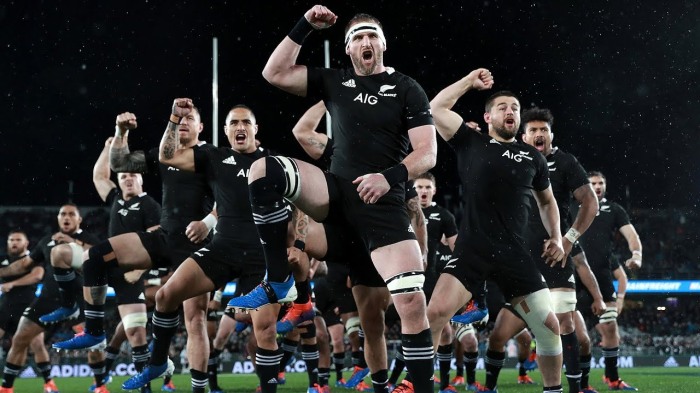In my last blog post one of the last things I mentioned that is essential to success for any team is cohesion. Some teams have it and some don’t. If you don’t understand it’s relevance and importance as a team manager you’ll never achieve it. I stated that I felt our DoR was ONE of the barriers to Cohesion for Gloucester. He’s now gone. I actually felt Ackers was also a barrier but to a lesser extent. He has now gone. But what is cohesion and why is it so important.

The easiest way to show what cohesion is is to choose teams that have it in bucket loads. Teams like Sarries and New Zealand. The All Blacks come from a nation 1/12 th the size of ours, less than 5 million compared to our 60 million. So why do they consistently trounce us (played 42, won 8). I think it may well be the smaller group they call from that helps. A team that stays together, plays together. Sarries is very much the same. Each season a small evolution in the squad rather than a massive revolution.
Cohesion is very much a science. It requires detailed understanding of psychology and an innate ability to build a team. Something Gloucester have been missing. Certainly we’ve hired some extraordinary talent over the years, and continue to do so. But a uniquely talented individual does not necessarily help build team cohesiveness. Someone may have an extraordinary level of ability but may struggle to work effectively within the larger team framework and deliver on that level. Any fracture within the team will destroy cohesion and effective teams are ones that remain united.
So how do we deliver a cohesive team on the field, and by team on the field I mean ALL aspects, from CEO to Hydration and every level in between? Clearly, there are key elements. Instead of going for the most talented and most expensive player choose one that has lived & breathed the team their whole career. One of the reasons I was gutted at the Loss of Hinkley. Yes, we have a wealth of talent in the back row but for how long will we be able to afford Polledri? And when Jones doesn’t come knocking for Ruan (’cause, while I like the lad, he’s along way short of England material in my opinion) will he hang about? And for Hinkley, in lieu of Glaws his choice of Exeter said a lot to me.
So world class is not necessarily what you want. Often a squad of 2nd or 3rd choice players will be a more cohesive unit because they’ve been on the training field together more often. Let’s face it, the BaaBaas don’t win many matches despite the quality of player. There was a time in the 70s, of course, but that was when the BaaBaas was effectively the entire Welsh back line and who doesn’t enjoy watching THAT try time after time. An amazing moment of rugby despite JPR being almost decapitated……TWICE!
There are many aspects of teams that eventually lead to a cohesive unit. Hiring the right (not necessarily best) people. Ensuring everyone’s contribution is valued. Empowering team members, creating leaders within the team. Resolving conflicts within the team quickly and effectively (cutting out the cancer!).
Influences on cohesion are several. One of the aspects that keep members of a group united is if they share similar values and attitudes. Employees and human beings, in general, always prefer the company of those who hold similar opinions, beliefs, and codes of conduct because they provide some form of social validation. But similarity of interest or opinion is not the only factor that drives team cohesion. In some instances, the primary task that needs to be accomplished keeps the group members united. For example, when a military unit is sent on a mission, accomplishing the task at hand becomes the cohesive factor. Whether or not the soldiers have similar attitudes and values does not matter much. Rugby is very much a metaphor for the military here.
The longer the group remain together helps to build that cohesion as does previous success within that group. Threat & competition to the team play a significant part, an essential element in Rugby.
Cohesion, then, refers to the degree of closeness that individuals feel within a team. The forces that bring group members together can either be positive or negative. The main factors that determine team cohesion are the similarity between members’ interests, group size, shared successes, and the threat of external competitors. There are different ways of improving team cohesion such as empowering group members, resolving disputes, and valuing every contribution made.
Team cohesion has been found to be essential in providing several benefits. For one, team members who work cohesively are likely to achieve their goals faster and more efficiently, and also, individuals in cohesive teams experience greater satisfaction which, therefore, leads to a greater desire to continue to contribute.
I think Gloucester RUFC have taken significant strides in removing barriers to team cohesion but I’m yet to be convinced those in charge have the where with all to genuinely deliver a cohesive team. Time will only tell. But just because someone like Dai Young or Richard Cockerill look good on paper there is a reason both left Wasps & Tigers respectively.
Reading back through this I think Gloucester’s deficiencies can be clearly identified. We have had no cohesion for many years. When the new Head Coach and Defence Coach are appointed I sincerely hope they have a proven history of ability to deliver the cohesion required for Gloucester to succeed. We shall have to be patient.